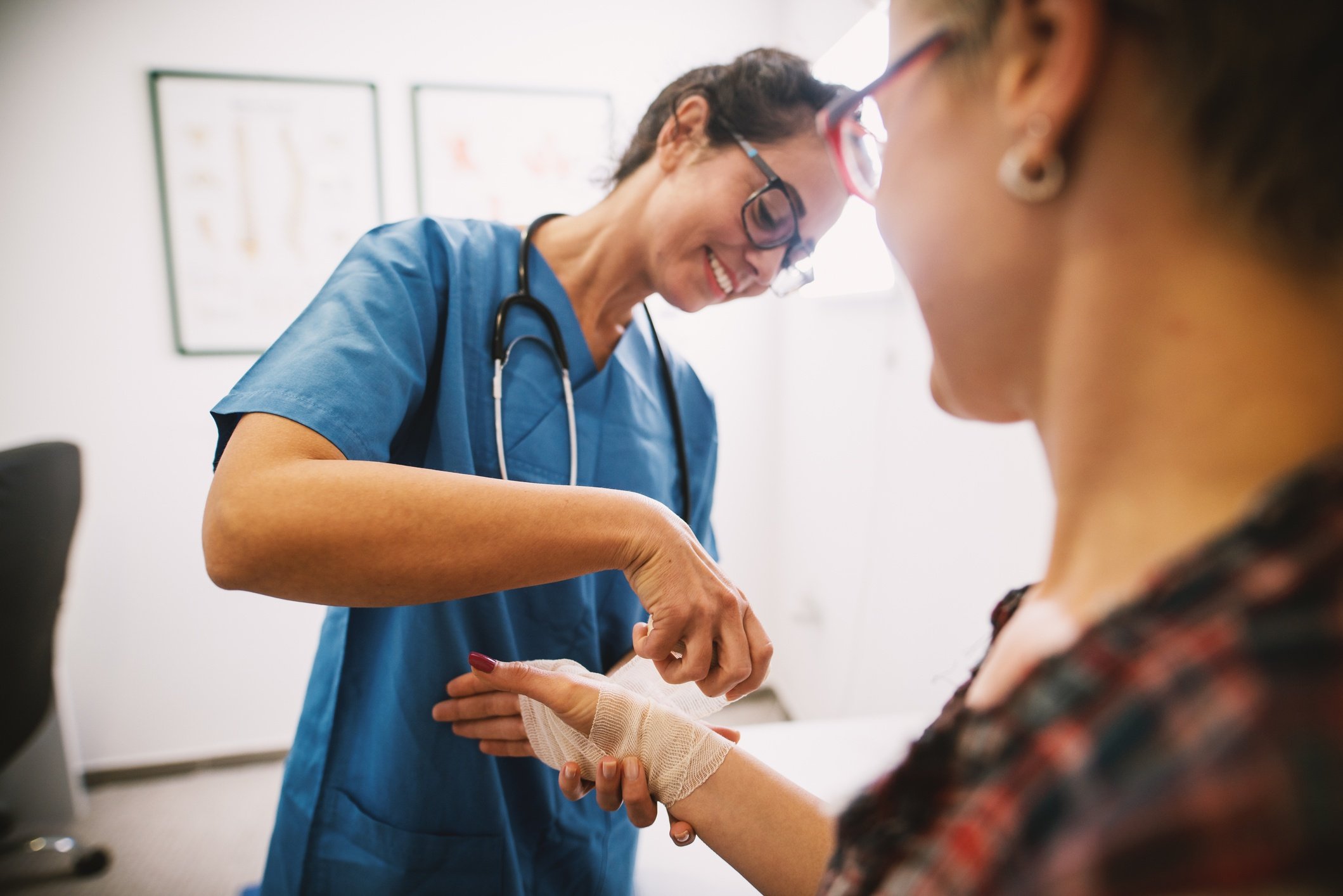Make a Plan for an Emergency
You know to call 9-1-1 if you or a loved one suffers a life-threatening emergency or illness. But did you know that what you do before and after you make that call can be just as important as dialing those three numbers? Use this guide to find out how you can prepare for an emergency.

When faced with an emergency situation, it is often difficult to stay calm and remember everything you need. Because of this, experts recommend that you prepare for an emergency before it happens by gathering all of the information you’ll need to give the 9-1-1 operator and emergency team. This includes:
- Your street address, apartment number and closest cross street
- A call-back number in case you are disconnected, or emergency personnel have additional questions
- Chronic medical conditions, if any
- Recent medical events or illnesses, if any
Keep this information handy (by the telephone or on the refrigerator, for instance) and include contact information for your doctors and family members. Make sure caregivers, babysitters and others know where to find this information. It is also important to have a list of allergies and medications, including how much and how often each is taken.
Just as important as having the patient’s medical history and medication list handy is deciding whether or not a call to 9-1-1 is truly necessary. 9-1-1 services are meant for patients who require rapid evaluation and transport. When 9-1-1 is called and it is not a true emergency, that ambulance and dispatcher are no longer available for someone who is having a true emergency like a heart attack or stroke.
You Just Called 9-1-1. What’s Next?
When a patient or family member calls 9-1-1, they will talk to a dispatcher who is trained to send emergency vehicles to patients and find out preliminary information that can be helpful to emergency personnel.
In case the emergency is happening while the patient or family member is on the phone, 9-1-1 operators are also trained to give advice on how to handle these situations until help arrives. For instance:
- In a choking victim, the operator may give advice on how to clear a victim’s airway, whether through the Heimlich Maneuver or another method.
- In a patient who is bleeding, the operator will give advice on how to control the bleeding, such as applying direct pressure until the ambulance arrives.
- In a patient whose heart has stopped, the operator might give instructions on how to perform CPR while waiting for the ambulance.
Waiting for Help to Arrive
Help is on the way, but don’t hang up the phone until the 91-1 operator tells you to do so. Families or patients can prepare for EMS’s arrival by unlocking doors, grabbing the patient’s medication list and clearing the area from unnecessary bystanders. If the patient is a minor, or an elderly or handicapped person, make sure an adult or person with power of attorney is available to authorize care. Furthermore, if there is information regarding care that the patient, or their medical power of attorney, does not want to have rendered, such as Do Not Resuscitate status, that information should be readily available to EMS personnel upon their arrival.
While nobody ever hopes to need 9-1-1, it helps to be prepared in case that day comes. In the event of an emergency, a few minutes can make all the difference.
